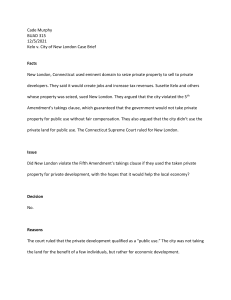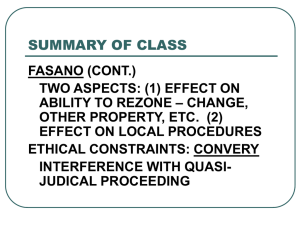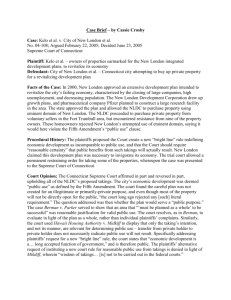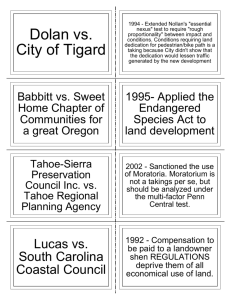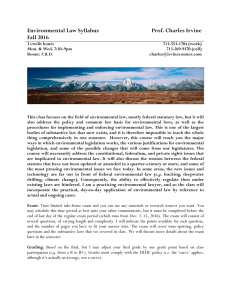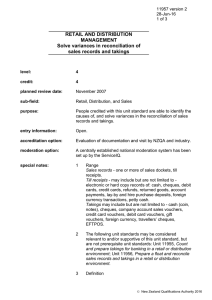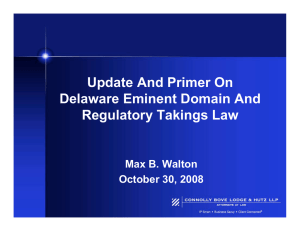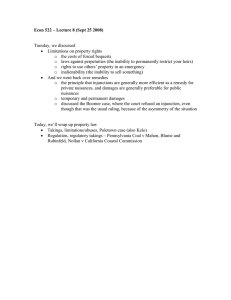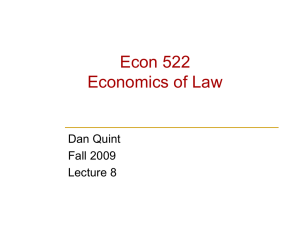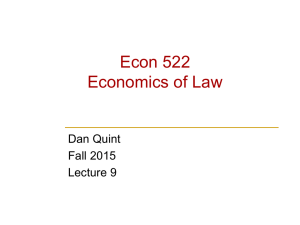Reading Tips and Study Questions: For Session 13
advertisement
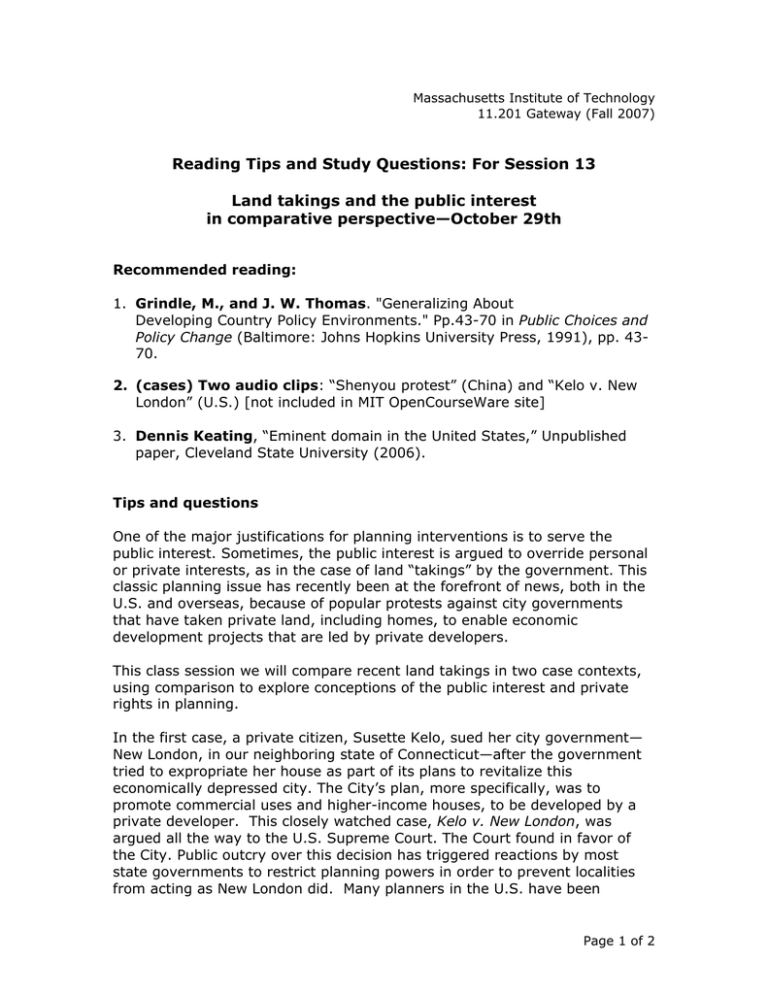
Massachusetts Institute of Technology 11.201 Gateway (Fall 2007) Reading Tips and Study Questions: For Session 13 Land takings and the public interest in comparative perspective—October 29th Recommended reading: 1. Grindle, M., and J. W. Thomas. "Generalizing About Developing Country Policy Environments." Pp.43-70 in Public Choices and Policy Change (Baltimore: Johns Hopkins University Press, 1991), pp. 4370. 2. (cases) Two audio clips: “Shenyou protest” (China) and “Kelo v. New London” (U.S.) [not included in MIT OpenCourseWare site] 3. Dennis Keating, “Eminent domain in the United States,” Unpublished paper, Cleveland State University (2006). Tips and questions One of the major justifications for planning interventions is to serve the public interest. Sometimes, the public interest is argued to override personal or private interests, as in the case of land “takings” by the government. This classic planning issue has recently been at the forefront of news, both in the U.S. and overseas, because of popular protests against city governments that have taken private land, including homes, to enable economic development projects that are led by private developers. This class session we will compare recent land takings in two case contexts, using comparison to explore conceptions of the public interest and private rights in planning. In the first case, a private citizen, Susette Kelo, sued her city government— New London, in our neighboring state of Connecticut—after the government tried to expropriate her house as part of its plans to revitalize this economically depressed city. The City’s plan, more specifically, was to promote commercial uses and higher-income houses, to be developed by a private developer. This closely watched case, Kelo v. New London, was argued all the way to the U.S. Supreme Court. The Court found in favor of the City. Public outcry over this decision has triggered reactions by most state governments to restrict planning powers in order to prevent localities from acting as New London did. Many planners in the U.S. have been Page 1 of 2 dismayed to find that basic planning actions are now jeopardized by the change in public sentiment. In the second case, we overview planning controversies in two Asian transition countries: Vietnam and China. These are currently the two fastest growing economies in the world. Interestingly, in both countries, the Communist Party firmly controls national economic policies and the state owns all land, but land use rights can be sold and transferred privately and private real estate markets have emerged rapidly. The urban periphery of these countries has seen rapid land development conversions from rural to urban uses where private fortunes have been made in a short amount of time. Local governments have been key to this phenomenon by exercising their strong powers of expropriation and of granting land use rights according to their master land use plans, which are created without community input. Popular protests, sometimes violent, have arisen to challenge the way windfall gains from urban development have not trickled down to those who have been forced to make way for the projects. The Grindle and Thomas chapter overviews some of the basic differences in the policy environments of the U.S. and in the developing world. It will also be helpful in preparing for the Narmada case memo assignment. 1. What are the similarities and differences between the two cases? That is, think about the current phenomenon of takings for local economic development in the context of Asian transition countries alongside what is happening in the United States, most recently in the Kelo v. New London decision. In particular, how do the differences in institutional context in each case shape the process by which planners—acting in either context— might define the public interest? 2. Historically, planning theory as an academic field has been dominated by Western, and in particular American, scholarship. Think back to readings you did recently for 11.201, including Davidoff on advocacy planning. What might Davidoff say about the takings in the US, China, and Vietnam? How does the concept of advocacy planning help us understand the situation? Given Grindle and Thomas’ characterization of some basic differences between Western industrialized countries and developing countries, how might Davidoff’s arguments not apply to the latter or apply differently? In our next class, you will be assigned to a group to explore together how a particular ethical position might frame the land takings controversies. Page 2 of 2
